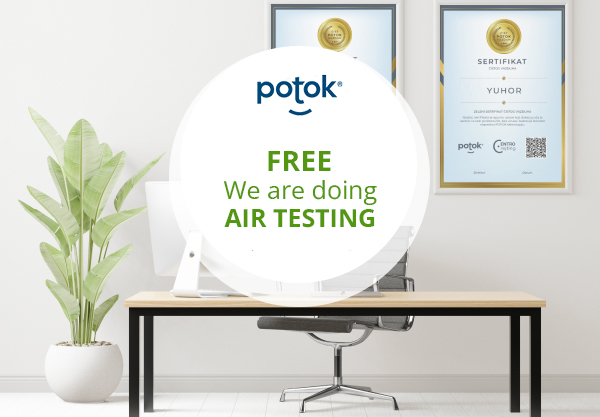Modern workspaces are increasingly adapted to the needs of employees, but one of the key factors that is often overlooked is air quality. Poor air quality in offices can lead to fatigue, headaches, reduced concentration and increased sick leave. Given that employees spend up to 90% of their time indoors, it is important to understand how the air they breathe affects their productivity and health.
Air quality problems in offices
Office spaces are often exposed to a variety of pollutants, including:
High CO2 – Insufficient ventilation leads to an increase in carbon dioxide levels, which reduces cognitive abilities and causes drowsiness.
Presence of bacteria and viruses – Closed spaces allow the rapid spread of microorganisms, which increases the risk of colds and other infections.
Chemical fumes from office furniture and equipment – Carpets, chairs, paints and printers can release harmful substances that cause respiratory irritation.
Dust particles and allergens – Dust, mold and pollen can cause allergic reactions and respiratory problems.
How does bad air affect employee productivity?
Studies have shown that poor air quality can reduce employee productivity by as much as 10-15%. The insufficient amount of oxygen in the office space directly affects the ability to make decisions, concentration and creativity. Also, increased exposure to pollutants leads to more frequent absences from work due to respiratory ailments and headaches.
Solutions for improving air quality
In order to ensure a healthier working environment and increase the efficiency of employees, the following measures are recommended:
Improvement of ventilation – Regular ventilation and modernization of ventilation systems.
Application Flow of air decontamination technology – Effectively removes bacteria, viruses and other harmful particles from the air, thus ensuring a healthy working environment.
Maintaining the cleanliness and hygiene of the premises – Regular cleaning and use of safe disinfectants.
Reducing the source of pollution – Using ecological materials and reducing the use of chemical air fresheners.
Planting air-purifying plants – Plants such as aloe, ficus and sansevieria can contribute to natural air filtration.
Conclusion
Air quality in offices has a direct impact on productivity, health and employee satisfaction. By implementing effective air purification systems, such as Potok technology, it is possible to significantly improve working conditions and reduce the risk of illness.
An investment in clean air is an investment in better business results and employee health!






